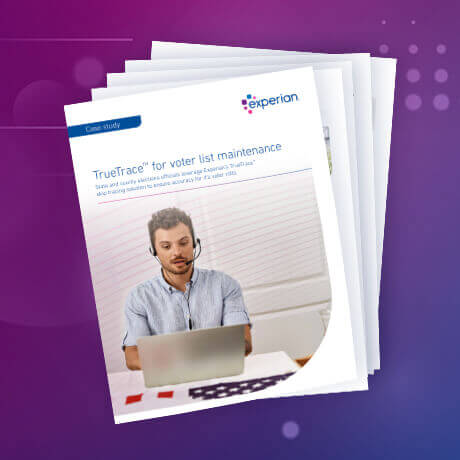
Welcome to the Experian Thought Leadership Hub
Gain insights into the fast-changing world of consumer and business data through our extensive library of resources.
5 resultsPage 1
 Webinar
Webinar
Maintaining accurate voter registration lists is vital for upholding election integrity and enhancing voter trust. As election agencies strive to keep their records up to date, innovative tools and solutions are being developed to address this ongoing challenge.
Watch our on-demand webinar to discover how agencies are leveraging unique data sources to improve voter list accuracy, reduce wasted resources, and lower election costs for taxpayers.
 Case Study
Case Study
Election integrity, accuracy and efficiency are essential to keeping our democracy running, and every organization that administers elections considers this responsibility paramount. Download our case study to learn how two entities used Experian’s data sources to benefit from high address location accuracy with minimal false positives.
 Case Study
Case Study
Underreported individual income tax is one of the largest, but most challenging problems facing tax and revenue agencies today. Using our advanced analytics and custom model development services, learn how one agency was able to detect over $33 million in tax revenue gap and prevent future underreporting of taxable income.